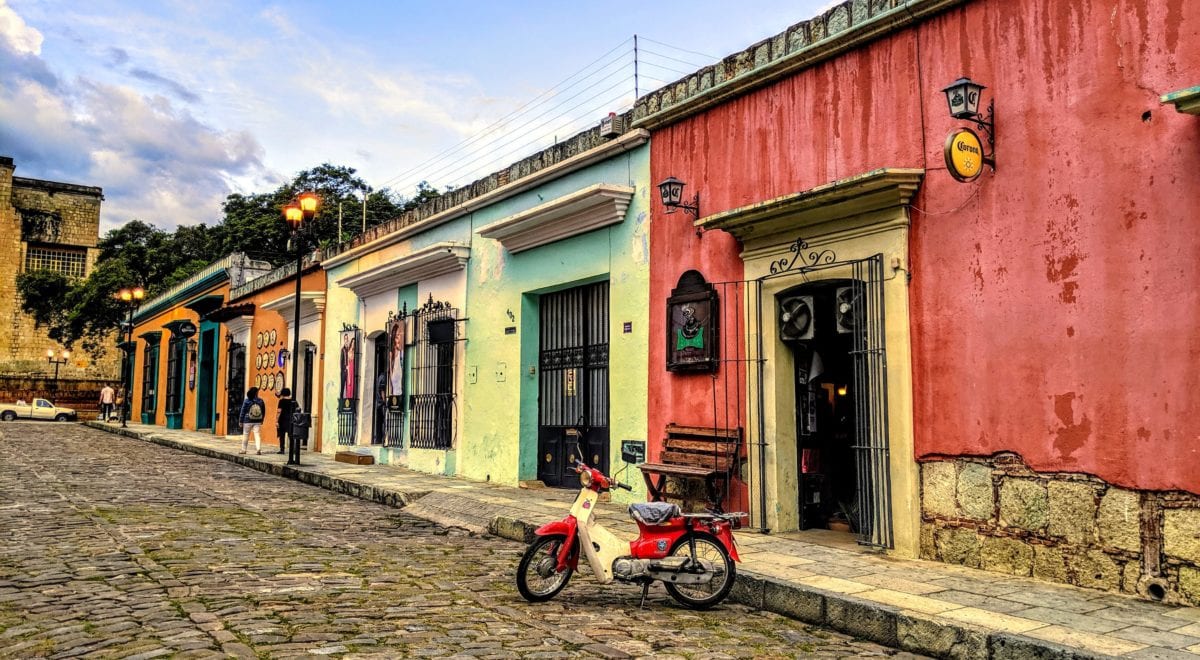Unfortunately, bad things happen. Bad things can happen at home or while traveling. But please don't let the possibility of something going wrong stop you from exploring the world or taking in amazing experiences.
With every tragic accident or freak occurrence, shocking headlines paint a dramatic and terrifying picture of a place. It's easy to let these stories shape our vision of a place. How many times have you your relatives say: “I heard it's not safe, are you sure you should go?” And then the doubt settles in.
Just remember: Traveling to most other countries is generally safe. Don't let one headline solidify your opinion; do the research. And after you've done your homework, if you feel uncomfortable or on edge visiting somewhere with recent bad news like the Dominican Republic, maybe reconsider – it won't be a fun or relaxing trip.
The best thing you can do to feel safe and comfortable on any trip is to be informed, use common sense, and follow some of these tips.
Check State Department Travel Advisories
The U.S. state department issues travel advisories based on many factors including political instability, probability of terrorism, health risks and more. It's a great resource for up to date information. Search for your destination or check out the interactive map before planning a trip.
The State Department issues advisories for every country, from Level 1 to Level 4.
- Level 1: Exercise Normal Precautions
- Level 2: Exercise Increased Precaution
- Level 3: Reconsider Travel
- Level 4: Do Not Travel
And while it always makes big headlines whenever a country is elevated to a Level 2 warning, consider this: Nearly all of Western Europe is under a Level 2 warning, from the U.K. to Denmark.
For an added sense of security, register your trip with the Smart Traveler Enrollment Program. Add your trip information including destination, dates of travel, hotel information, passport number, and your travel mates. You will then be registered with the U.S, Embassy at your destination and will be notified if anything happens.
Research Crime Statistics
Don't believe everything you hear. Take some time to research the crime statistics of your destination before you go. You'll quickly learn what to watch out for and which areas may be less safe than others.
Compare your destination the city you live in. You might be surprised to learn that your destination is safer than where you live.
Learn About Your Destination
Learning as much about your destination beforehand can help you feel more at ease. Buy a guide book to get a brief history, cultural knowledge, insider tips and tricks, and also where to go and sometimes what to avoid. Wiki Travel is also a great resource. You might learn that haggling is expected or that you shouldn't rent a car.
Knowing about your destination and its people and culture will also help you get more out of your trip.
After doing some research, you can book your hotel or Airbnb in an area that is walkable. Rely less on public transport, Uber, or taxis. Stay near restaurants and bars, the main sites you want to see, and with the vibe, you're looking for. Here are some tips for finding the best Airbnb in a great neighborhood.
Stay Connected
You will want access to maps, restaurant recommendations, the ability to call in an emergency, and, of course, social media. Check out some of the best options for international cell phone plans, including our favorite, Google Fi. Share your travel plans with friends or family members, too, so they can keep tabs on you.
If you don't have service while traveling, or for some reason, it doesn't work, there are some great travel apps that you can use while offline.
Make Copies of Your Passport and Bookings
Cellphones can fail. Paper doesn't.
Print out copies of all your bookings including flights, hotel, Airbnb, rental cars, and any tours. Instead of panicking when your cellphone doesn't work, you can pull out the address where you're staying and get there safely.
But nothing is worse than losing your passport. So even if you're set on staying 100% digital, make a copy of your passport just in case.
Take Photos of Important Items
Before your trip, take photos of your credit cards and passport. Email copies to a trusted friend or family member, along with your itinerary. In the event of stolen or lost passport and credit cards, you will have the information you need. Immediately call and cancel your credit cards and bring the photo of your passport to the closest U.S. Embassy.
In addition to the paper copies you've got, this could be a lifesaver.
Use Google Translate
One of the biggest concerns for first-time travelers is a possible language barrier. English is widely spoken around the world and you will rarely have a problem.
But every once in a while, there will be a menu, traffic sign, or metro instructions that you can't read. Download Google Translate and have it ready to use. It will also come in handy in case of an emergency.
Learn a few phrases like “hello,” “thank you,” and “cheers” in the local language. It's a great way to make connections with the locals and to feel more immersed in the culture. All it takes is one friendly interaction to help you feel comfortable and safe.
Don't Carry a Ton of Cash
It's always risky to carry a lot of cash around.
Don't exchange your money before you get on the plane – get the Charles Schwab debit card instead. It's free to apply, and it has no ATM or foreign transaction fees. Withdraw just enough money for a couple of days and head back to the ATM when you need more cash.
This will also help minimize the amount of foreign money you have to get rid of at the end of your trip. And if you get pickpocketed or lose your wallet, you won't be out as much cash.
Use Common Sense
Be polite and show respect. You are visiting someone else's home. Don't do anything to put yourself in unnecessary danger by wandering around at night alone or getting overly intoxicated.
Listen to the locals about areas to avoid in town. And most obviously, don't do anything illegal. That only invites the trouble you're hoping to avoid.
Traveling Solo? Stay in Hostels
Hostels might bring up thoughts of a college dorm room, but there are all kinds of hostels with private rooms and great amenities. But above all, they're great for solo travelers.
Hostels tend to attract solo or group travelers looking to meet like-minded people. Whether you make some new friends or just say hi, it can be a support network that watches out for you. So grab a drink at the hostel bar and strike up a conversation. You'll find some great people to go on a tour with or get dinner at a restaurant you've been dying to try.
Here are more of our top tips for solo travelers.
Travel Insurance
Ah, the most frequent question of them all. “Do I need travel insurance?”
That's a tough question to answer, and it will be different for every person. But if you're nervous about your upcoming trip, some insurance could help put you at ease.
Use websites like Squaremouth.com or InsuremyTrip.com to search for the best policy. They'll help boil down the basics of what you'll be covered for, but you should still read the fine print of each and every policy to make sure you're covered.
Are you doing some extreme activities like rock climbing or bungee jumping on your trip? Or do you have some chronic health issues? Make sure your policy comes with health coverage. Some insurers sell dedicated health policies when you're traveling.
And check into whether you've got credit cards that offer insurance. Some credit cards like the Chase Sapphire Preferred Card are great for trip cancellation, while others like the Platinum Card from American Express card are great for emergency medical coverage.
Bottom Line
Don't let the headlines scare you. There is so much of the world to see, and the vast majority of it is safe. Follow these tips and use your head.







In addition to taking photos of official documents and credit cards, snap a photo of your luggage if you’re checking it. Makes it so much easier if it happens to get lost!
I agreed with your words.